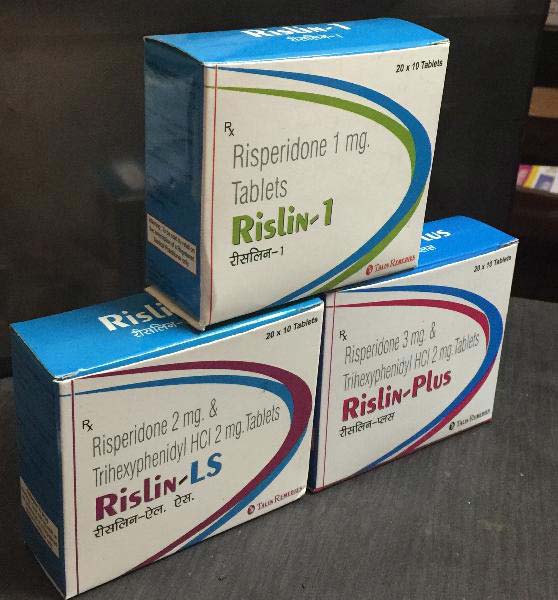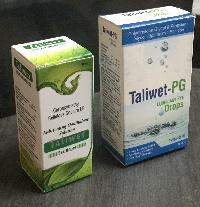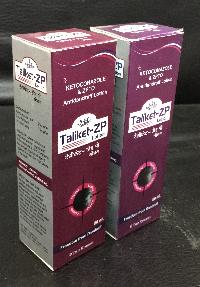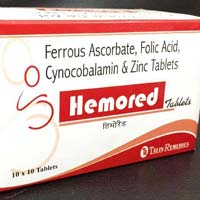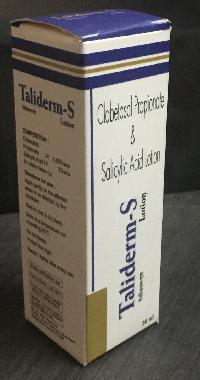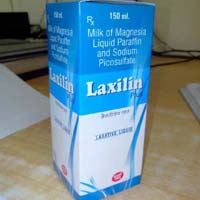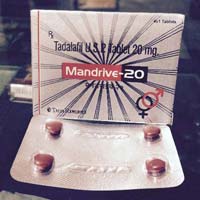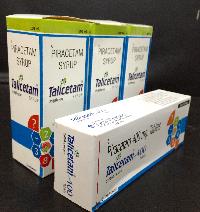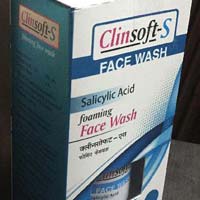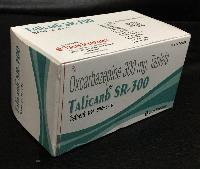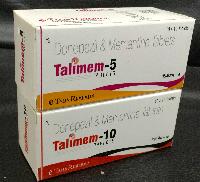Bhagtawala, Amritsar, Punjab
- GST NO. : 03AAGCT2565E1ZL
Rislin Tablets
| Business Type | Manufacturer, Exporter, Supplier, Retailer, Wholesaler |
| Generic Name | Risperidone |
| Brand Name | Rislin |
Preferred Buyer From
| Location | Worldwide |
Drug Class and Mechanism : Rislin (risperidone) is an atypical antipsychotic drug that is used for treating schizophrenia, bipolar mania and autism. Other atypical antipsychotic drugs include Olanzapine (Olife), Quetiapine (Taliquel), Ziprasidone , Aripiprazole and paliperidone . Atypical antipsychotics differ from typical antipsychotics due to the lesser degree of extrapyramidal (movement) side effects and constipation.
Details :
- The exact mechanism of action of Rislin (risperidone) is not known, but, like other anti-psychotics, it is believed that risperidone affects the way the brain works by interfering with communication among the brain's nerves. Nerves communicate with each other by making and releasing chemicals called neurotransmitters. The neurotransmitters travel to other nearby nerves where they attach to receptors on the nerves. The attachment of the neurotransmitters either stimulates or inhibits the function of the nearby nerves. Risperidone blocks several of the receptors on nerves including dopamine type 2, serotonin type 2, and alpha 2 adrenergic receptors.
- It is believed that many psychotic illnesses are caused by abnormal communication among nerves in the brain and that by altering communication through neurotransmitters, risperidone can alter the psychotic state. Risperidone was approved by the FDA in December, 1993.
- Prescription - Yes
- Preparations - Tab RISLIN® Tablets are available in 1 mg (Brown), 2 mg (orange), Rislin Plus (Red Brown), Risperidone 3 mg +Trihexyphenidyl 2 mg. strengths. rislin® tablets contain the following inactive ingredients: colloidal silicon dioxide, hypromellose, lactose, magnesium stearate, microcrystalline cellulose, propylene glycol, sodium lauryl sulfate, and starch (corn). The 1 mg, 2 mg, PLUS tablets also contain talc and titanium dioxide.
- Storage - Tablets should be kept at room temperature, 15-25 C (59-77 F)
Prescribed For : Risperidone is used to treat schizophrenia, bipolar mania [as a sole therapy or combination therapy with lithium , or valproate (validin, Divolin) and for the treatment of irritability associated with autistic disorder in children and adolescents. Clinical studies involving small numbers of patients have shown some benefit in using risperidone for stuttering and Tourette syndrome (non FDA-approved uses). Another non-FDA approved use of risperidone is for obsessive-compulsive disorders.
Dosing :
- Rislin (risperidone) can be administered once or twice daily. Initial dosing is generally 2 mg/day. Dose increases can occur in increments of 1-2 mg/day, as tolerated, to a recommended dose of 4-8 mg/day. In children, risperidone should be initiated at 0.5 mg once daily, and can be increased in increments of 0.5 or 1 mg/day, as tolerated, to a recommended dose of 2.5 mg/day. Risperidone can be given with or without meals. The recommended dose of Risperdal Consta is 25 mg injected into the deltoid or gluteal muscle every two weeks.
- Patients who have never received risperidone are started on oral risperidone in order to evaluate tolerability.
Drug Interactions :
- Risperidone may interfere with elimination by the kidneys of clozapine , a different type of antipsychotic medication, causing increased levels of clozapine in the blood. This could increase the risk of side effects with clozapine.
- Serotonin reuptake inhibitors such as paroxetine (Paxilin, Sertraline , and fluoxetine when taken with risperidone causes the metabolism (breakdown) of risperidone by the liver to be inhibited, which in turn causes elevated blood levels of risperidone, and may increase the risk of adverse reactions.
- Antifungal drugs such as fluconazole , itraconazole , and ketoconazole when taken with risperidone cause the metabolism (breakdown) of risperidone by the liver to be inhibited, which in turn causes elevated blood levels and may increase the risk of adverse reactions.
Pregnancy : There are no adequate studies of risperidone in pregnant women. Some unwanted effects have been reported in animal studies. Risperidone can be used in pregnancy if the physician feels that the benefits outweigh the potential but unknown risks.
Nursing Mothers : Rislin ( risperidone) is excreted in human breast milk. Women receiving risperidone should not breastfeed.
Side Effects :
- The most commonly-noted side effects associated with risperidone are extrapyramidal effects (sudden, often jerky, involuntary motions of the head, neck, arms, body, or eyes), dizziness, hyperactivity, tiredness, abdominal pain, fatigue, fever and nausea. Risperidone may cause a condition called orthostatic hypotension during the early phase of treatment (the first week or two). Patients who develop orthostatic hypotension have a drop in their blood pressure when they rise from a lying position and may become dizzy or even lose consciousness.
- Studies involving risperidone suggest an increased risk of hyperglycemia-related adverse reactions as seen in diabetes. Although there is no clear link between risperidone and diabetes, patients should be tested during treatment for elevated blood sugars. Additionally, persons with risk factors for diabetes, including obesity or a family history of diabetes, should have their fasting levels of blood sugar tested before starting treatment and periodically throughout treatment to detect the onset of diabetes. Any patient developing symptoms that suggest diabetes during treatment should be tested for diabetes.
Uses : This medication is used to treat schizophrenia and bipolar disorder (manic phase). It works by helping to restore the balance of certain natural substances in the brain (neurotransmitters). Risperidone has not been shown to be safe or effective in the elderly for the treatment of delusions/hallucinations (psychosis) due to dementia.
How to Use : Take this medication by mouth exactly as prescribed. This drug may be taken with or without food. During the first few days your doctor may gradually increase your dose to allow your body to adjust to the medication. The dosage is based on your medical condition and response to therapy. Continue to take this medication as directed, even if you are feeling better and thinking more clearly. Do not take this more often or increase your dose without consulting your doctor. Your condition will not improve any faster but the risk of serious side effects will be increased. Do not stop taking this drug without your doctor's approval. Use this medication regularly in order to get the most benefit from it. Remember to use it at the same time(s) each day.
Side Effects :
- Dizziness, drowsiness, fatigue, nausea, constipation, runny nose, weight gain, nervousness, acne, dry skin, difficulty concentrating, decreased sexual ability/desire or difficulty sleeping may occur. If any of these effects persist or worsen, contact your doctor or pharmacist promptly. To minimize dizziness and lightheadedness, get up slowly when rising from a seated or lying position. Tell your doctor immediately if any of these serious side effects occur - fainting, rapid/pounding/irregular heartbeat, mental/mood changes, fever, muscle stiffness/spasms/twitching, sweating, uncontrolled muscle movements (e.g., tongue and facial muscles), drooling, difficulty swallowing, seizures.
- Tell your doctor immediately if any of these unlikely but serious side effects occur: chest pain, one-sided weakness, numbness in the face/arms/legs, sudden vision changes, slurred speech, confusion. This medication may in rare instances increase your blood level of a certain hormone (prolactin). In females, an increase in prolactin levels may result in unwanted breast milk, the end of menstruation or difficulty becoming pregnant. In males, it may result in decreased sexual ability, inability to produce sperm, or enlarged breasts. If you develop any of these symptoms, tell your doctor immediately.
- This drug may infrequently make your blood sugar level rise, therefore causing or worsening diabetes. This high blood sugar can rarely cause serious (sometimes fatal) conditions such as diabetic coma. Tell your doctor immediately if you develop symptoms of high blood sugar, such as unusual increased thirst and urination. If you already have diabetes, be sure to check your blood sugar level regularly.
- This drug may also cause significant weight gain and a rise in your blood cholesterol (or triglyceride) levels. These effects, along with diabetes, may increase your risk for developing heart disease. Discuss the risks and benefits of treatment with your doctor. (See also Notes section.) Males: In the unlikely event you have a painful, prolonged erection, stop using this drug and seek immediate medical attention or permanent problems could occur.
- A serious allergic reaction to this drug is unlikely, but seek immediate medical attention if it occurs. Symptoms of a serious allergic reaction include: rash, itching, swelling, severe dizziness, trouble breathing. If you notice other effects not listed above, contact your doctor or pharmacist.
Warning :
- Increased Mortality in Elderly Patients with Dementia-related Psychosis Elderly patients with dementia-related psychosis treated with antipsychotic drugs are at an increased risk of death. Analyses of 17 placebo-controlled trials (modal duration of 10 weeks), largely in patients taking atypical antipsychotic drugs, revealed a risk of death in drug-treated patients of between 1.6 to 1.7 times the risk of death in placebo-treated patients. Over the course of a typical 10-week controlled trial, the rate of death in drug-treated patients was about 4.5%, compared to a rate of about 2.6% in the placebo group.
- Although the causes of death were varied, most of the deaths appeared to be either cardiovascular (e.g., heart failure, sudden death) or infectious (e.g., pneumonia) in nature. Observational studies suggest that, similar to atypical antipsychotic drugs, treatment with conventional antipsychotic drugs may increase mortality.
- The extent to which the findings of increased mortality in observational studies may be attributed to the antipsychotic drug as opposed to some characteristic(s) of the patients is not clear. Rislin® (risperidone) is not approved for the treatment of patients with dementia-related psychosis. [See Warnings and Precautions]
Looking for "Rislin Tablets" ?
Explore More Products


